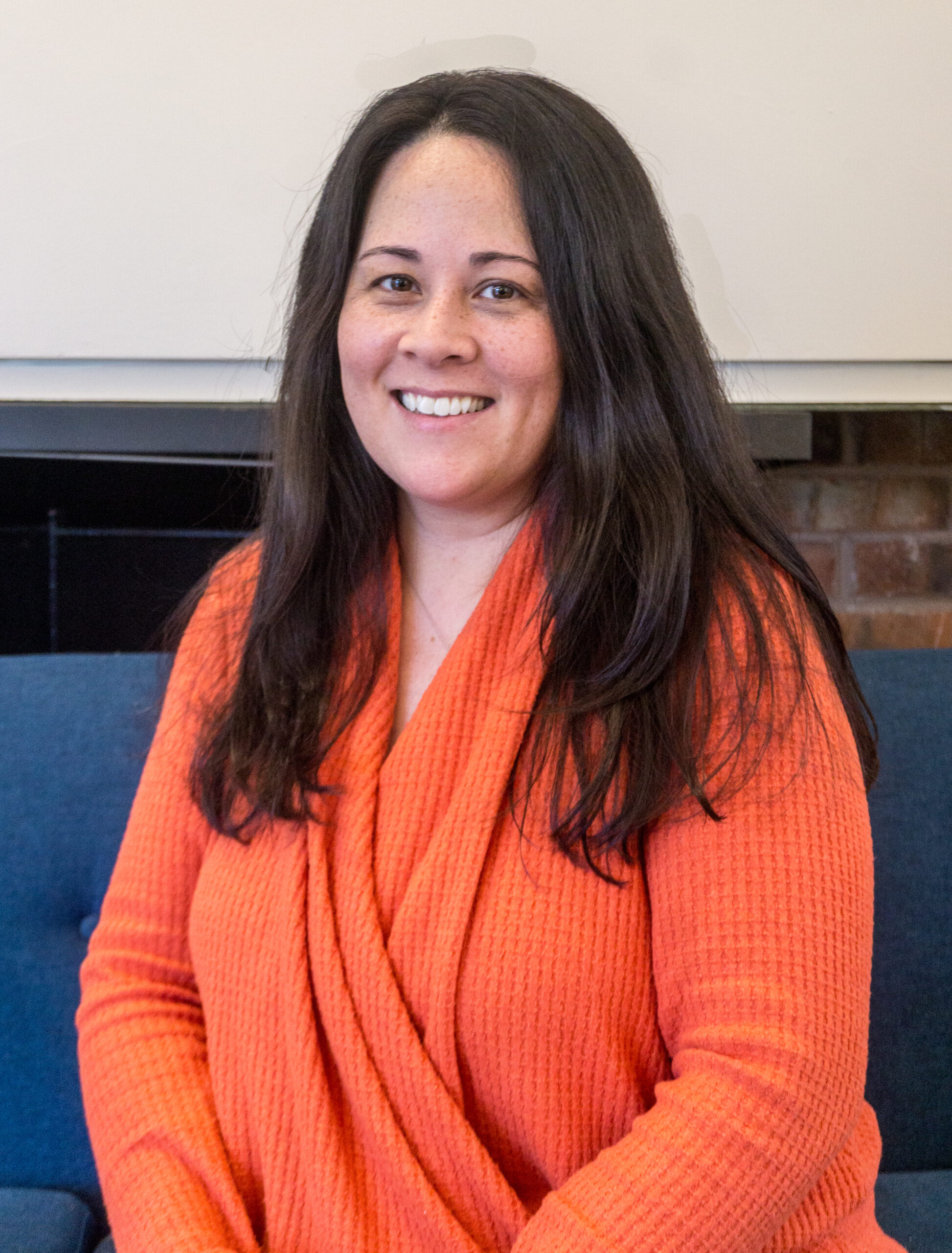Sue K. Adams, chair of the Department of Human Development and Family Studies, discusses recently-conducted sleep studies at URI. Photo by Autumn Walter.
This professor studies sleep patterns and why they’re important
After a long day of classes, clubs, and other activities, students have to do their homework and find time to socialize with other students. By the time that students have finished all of this and more, there is little time to sleep before their next day starts.
Sue K. Adams, chair of the Department of Human Development and Family Studies, runs a series of sleep studies at the University of Rhode Island which focus on how environmental factors affect students’ sleep.
In her research, Adams found that students are sleeping only 6.5 hours a night, but the average college student should be getting closer to nine. By definition, students are chronically undersleeping.
“What I’m doing is more of a kind of a psychosocial approach to understanding sleep,” Adams said. “So trying to understand for college students what is it about the environment and the things in their lives that are impacting how much they sleep. We’re doing research that relies more on having students fill out questionnaires, having them do sleep diaries, wearing FitBits to get an objective measure of their sleep and asking them about those other things in their lives that impact their sleep. For example, technology or [the] social demands of college life.”
Adams’s last study was a pseudo-experimental study where students filled out questionnaires about sleep, anxiety, test anxiety and depression. The researchers looked at how students had been sleeping and showed them videos that were either funny or boring and recorded the student’s faces. The researchers looked at the student’s eyelids to see if they could find an objective way to tell how tired someone was by how fast or slow they were blinking.
Currently, she is working on getting this study published. The study found that students with higher levels of test anxiety and sleep problems had various mental health concerns compared to students who didn’t have those problems. According to Adams, it is hard to stage a sleep intervention in college, but they can help with issues like test anxiety, which could help students sleep better.
Adams takes on lab assistants each semester to work with her on the study she is conducting. This allows the students to see the research methods they have learned in practice.
Kelsey Grenus, a senior at URI, said that her work with Adams prepared her for her current internship.
“[Adams] is incredible to work with; she’s very personable,” Grenus said. “The opportunity to work with her, along with a few other students, was really good. She really wanted to make sure that it was educational and helping us, as well as helping her.”
Technology is a major part of everyday life, but it also has the capability to get in the way of sleep, according to Adams. She recommends students put away their phones to sleep.
“We did a study a few years ago and 47 percent of students in the study were waking up to their cellphones after they fell asleep,” Adams said. “I know it is really hard for students, but just being able to set a boundary, and to say ‘you know what, I’m tired, I’m going to sleep and I’m going to turn my phone off or silence it.’”
Besides technology, there are many factors that keep students awake. According to Adams, social demands during freshman year are hard to balance with other responsibilities and sleep. Getting better sleep can help mental health, grades and patience with others.
Personal changes can help students sleep, but Adams said that our system must change as well. She recommends that classes for freshmen and sophomores are moved later than 8 a.m. because of sleep cycle changes that make late teens want to go to sleep later and wake up later. She also wants freshmen to be given more information on sleeping in college.
Adams would also like to see a cultural shift in how people view sleep.
“I think [in] our culture generally there’s this heroic quality like, ‘oh I only slept four hours, look at me and how I am functioning,’” she said. “That shouldn’t be a good thing; it shouldn’t be something that we go around bragging about.”

